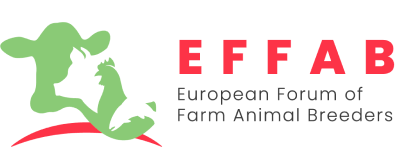Animal Health
And Welfare
Animal welfare is a significant priority for farmers and citizens. Health and welfare are two close related, sometimes overlapping, subjects. Breeding organisations must ensure the health and welfare of their animals and their offspring. New biological insights into function, genetics of behaviour and physiological indicators of stress and well-being will provide new tools that allow welfare traits to be treated more objectively than at present.
Breeding may contribute to robust and healthy animals by selection for more general and specific disease resistance and consequently less use of medicines. Optimisation of use of medicines and vaccines, given the genetic make-up of the animals, is a significant opportunity for development. Animal Breeders must keep a balance between the intrinsic characteristics of domesticated species, welfare and improved production levels.
Animal health includes :
- Robustness
- Disease resistance
- Udder health
- Gut health
- Cardiovascular and respiratory functions
Animal welfare includes:
- Vitality
- Positive behavior (feather pecking, tail biting...)
- Feet, back and leg strength and conformation
- Maternal abilities
- Stress susceptibility
- Osteoporosis
- Keel bone damage
- Teat numbers and availability for piglets
- and many other...
